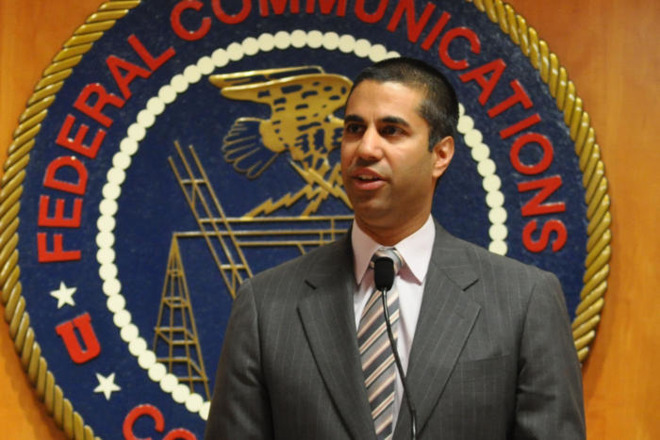As predicted, the Federal Communications Commission has submitted its plan to return power to internet service providers over the terms of what content will be served to users, and to repeal previous net neutrality protections applied to customers and businesses.

FCC Chairman Ajit Pai says that his proposal cuts back on government regulation, and will regulation mostly up to the providers. The proposal basically strips away requirements applied to the carriers by the government, and will only hold them responsible for what promises companies like AT&T, Verizon, T-Mobile, Comcast and others make to customers, rather than provide any best -- or required -- practices.
"For almost twenty years, the Internet thrived under the light-touch regulatory approach established by President Clinton and a Republican Congress," said FCC Chairman Ajit Pai. "This bipartisan framework led the private sector to invest $1.5 trillion building communications networks throughout the United States. And it gave us an Internet economy that became the envy of the world"
"But in 2015, the prior FCC bowed to pressure from President Obama. On a party-line vote, it imposed heavy-handed, utility-style regulations upon the Internet," added Pai. "That decision was a mistake. It's depressed investment in building and expanding broadband networks and deterred innovation."
The new proposal suggests that the FCC remove the classification of internet service providers as a common carrier, stripping the legal authority of the agency to regulate provider's behavior beyond breaking promises to customers.
"Under my proposal, the federal government will stop micromanaging the internet," Pai said in a statement. "Instead, the FCC would simply require internet service providers to be transparent about their practices so that consumers can buy the service plan that's best for them and entrepreneurs and other small businesses can have the technical information they need to innovate."
Beyond the stripping of the common carrier classification, the proposal also removes most of the supervisory element from the FCC. Instead, the Federal Trade Commission will have the power to sue companies that do not conform to statements that the carriers themselves have made to the public.
In making the proposal, Chairman Pai rejected wide calls from fellow commissioners, the public, and companies that do not provide internet service to maintain net neutrality regulations. While the majority of the 22 million comments received by the FCC during a public comment period were form letter and spam, one analysis found that over 98 percent of the comments actually written independently were in favor of net neutrality as executed in 2015.
"In just two days, many of us will join friends and family in celebrating the spirit of Thanksgiving. But as we learned today, the FCC majority is about to deliver a cornucopia full of rotten fruit, stale grains, and wilted flowers topped off with a plate full of burnt turkey," said Commissioner Mignon Clyburn. "Their Destroying Internet Freedom Order would dismantle net neutrality as we know it by giving the green light to our nation's largest broadband providers to engage in anti-consumer practices, including blocking, slowing down traffic, and paid prioritization of online applications and services."
The draft order entitled "Restoring Internet Freedom" was submitted to the FCC commissioners on Tuesday. The text will be made publicly available on Wednesday.
The proposal will likely get the green light on Dec. 14, with a 3-2 vote along expected party lines.


